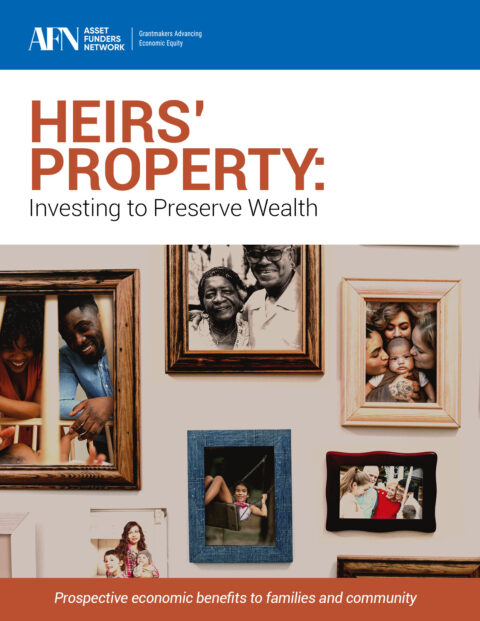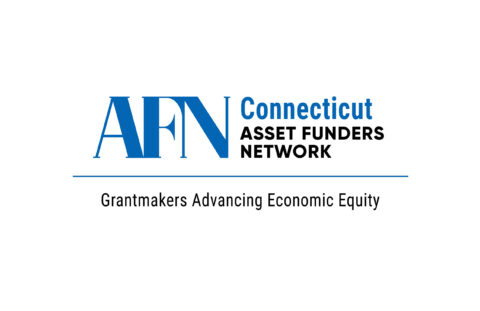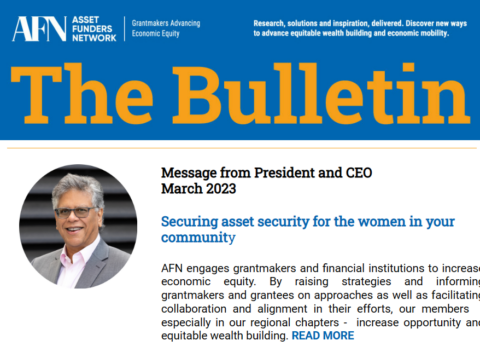
FROM THE PRESIDENT AND CEO
JUNE 2023
Stable housing is essential from both an economic and human rights standpoint. From the perspective of building assets, housing should be both safe and affordable, with predictable costs, whether it is rented or owned. Philanthropy can, and in many regions does, invest in various approaches to improve outcomes by collaborating with public funds, financial institutions, and developers. At AFN, we applaud these approaches; however, we also prioritize achieving economic justice within the market. It requires innovation, long-term commitment, and redefinition of risks to foster more equitable shares of the asset wealth that housing provides.
Consider what contributes to housing security and what is a threat:
- Rental housing in the market that is affordable and priced consistently over time allows the renter to focus discretionary income on asset building strategies. The stability in many markets has been undone by unpredictable pricing of rent when a landlord owner from the community is bought out by a conglomerate seeking to maximize profit or a community is experiencing unbridled gentrification with a form of modern blockbusting.
- We know that homeowners build wealth in two ways. First, is the passive asset building from paying the mortgage over time. Second, housing value appreciation over time adds more equity. But housing value appreciation can accelerate so fast that taxes become unaffordable or the relentless drumbeat to refinance for a lower payment includes a resetting that wipes out the equity.
- And both types of housing stability are vulnerable to extreme climate change impacts ranging from flooding to extreme heat to more frequent tornadoes and hurricanes as well as to an array of legal challenges created by clouded title, lack of wills clarifying inheritance, and unscrupulous collection actions and lawsuits.
Given the history of racial redlining to deny mortgages and depress housing values and the current threats to stability, some question whether expanding home ownership to live in or as a small landlord is an asset building approach that makes sense to commit to as an equity strategy.
AFN members across the spectrum think it is. A future economy that expands the possibilities for stable affordable housing and homeownership with the goal to foster and achieve racial economic justice across the many regional markets will require innovation, collaboration, funding of creative grantees, and calculated risk tolerance by funders willing to reimagine and achieve needed system change.
Over the next few months, we will be releasing a focus on the solvable challenges experienced by primarily black home and land owners in heirs’ property—including clouded title, problems with laws excluding these owners from tax exemptions or access to improvement funds, and unscrupulous speculators. And while you may think of this as a rural issue, it is also an urban issue. Philanthropy has started to fund solutions, but nowhere near scale.
We will be following up with a focus on small landlords (sometimes called mom-and-pop landlords typically owning fewer than 4 units) the primary source of affordable housing in the rental markets in most communities. Remember that the rental unit is also the asset of the owner – part of their wealth and security. Preserving and improving these units for both the tenant and the landlord, as well as the community, can be addressed by philanthropy, credit unions, and CDFIs.
AFN members are also exploring how home ownership strategies can be reinvented and enhanced for equity outcomes in many communities. Funders are providing down payment assistance; using market-related investment, program-related investment, or grants to support predevelopment or affordable new housing development; advancing changes in laws to support ADUs to preserve assets and increase available housing; or funding credit unions with funds for a loan loss reserve to help expand affordable mortgage access. In a nascent but important development, we anticipate future highlighting of efforts by funders who are providing direct support for home ownership by Black residents as a reparation strategy. In other venues, where housing is unaffordable to purchase, public-private efforts are implementing land grant strategies for homeownership or shared ownership as a broader solution.
AFN is soon exploring, in a peer-to-peer session (and likely at our 2024 conference), the approaches that philanthropy can utilize to increase economic justice in the foreseeable economy that is moving to greater freedom from fossil fuels and changing as climate change creates new demands on household balance sheets.
AFN’s network and technical support as well as regional chapters continue to allow funders to explore and learn about the array of workable approaches to let them land on what works for them in their communities. Asset building in the economy depends on affordable housing stability and expanded ownership opportunity. Join AFN to establish a region, allocate funds to attend our National Grantmaker Conference, April 16-18, 2024, and engage in meaningful discussions with your peers.



